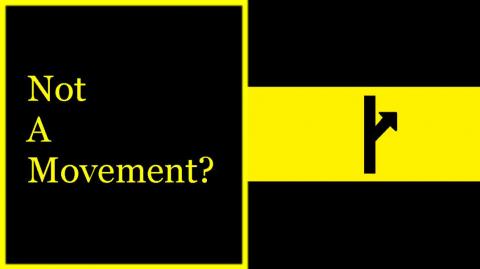On Socialism: Utopia Building - MGTOW
A tour of socialist ideology as it pertains to utopia building. This video gives you clear picture what the socialist utopia is suppose to look like according to socialist theory.
Patreon
https://www.patreon.com/ground....work_for_the_metaphy
Paypal
https://www.paypal.com/cgi-bin..../webscr?cmd=_s-xclic
Script
http://www.gftmom.com/portfoli....o-item/on-socialism-
Socialism is an interesting phenomenon with a history stemming all the way back to the Egyptians. Though most people today only associate Socialism with Marxism, Marx was only one of the most recent thinkers on this subject and when we look at the works of Marx in the context of all thinkers that have preceded him and Engels, we find that they are not overly original thinkers. If anything, Marx and Engels are more of an update to socialist thought that takes into account the developments that took place in the 19h century.
Now, what I want to do in this video is to go over some books by utopian thinkers that cover the period just preceding the enlightenment and leading up to but not including Marx. What I hope to achieve is to give to those who are interested in the subject of socialism a short whirlwind tour of what is referred to as chiliastic socialism, or how it is also called, Millennialism. Now, one thing that seems to encompass all of socialism is the notion of paradise on earth; the notion of creating a utopia. But where does this idea of the utopia come from? Well, it comes from the Bible, the book of Revelation chapter 20, sections 1 through 6. These sections describe that there will be a Golden Age or Paradise on Earth in which "Christ will reign" for 1000 years prior to the final judgment.
As we can see the notion of paradise on earth is quite old but we are not as concerned with the religious origins of the idea of paradise on earth as we are with the more commonly understood notion of a utopia and what this utopia is supposed to look like. The best place to start is with the book entitled Utopia by Thomas More which was published in 1516. Now, the timing of this book provides to us a clue as to why interest in utopian thinking really took off in the 16th century. The reformation of Luther started just a year after the publishing of this book. Tough this book had no role to play in why the reformation took place, both the existence of this book and the cause of the reformation itself share a common root. You see, in the 12th century came the rise of nominalism. Now, I don't want to get into nominalism in this video as this is a very comprehensive topic that demands a video of its own. In fact, the first video in my series on modernity deals with the subject of nominalism extensively. For the purpose of this video, suffice to say that nominalism is responsible for the rise of humanism, modern science, the reformation, as well as the rise of utopian thinking. In a nutshell, nominalism caused a huge ripple in Christian theology whose effects we are feeling to this day.
Now, back to Thomas More.
In the beginning of the sixteenth century, just before the Reformation, Thomas More's Utopia appeared. This book exhibited numerous features of the new socialist literature. In this work we first meet the literary devices that are later to become standard such as descriptions of travel to a far-off land and the discovery of a previously unknown, exotic place where the ideals of socialism have been realized. Not surprisingly, the title of this work has become one of the terms denoting the teaching of socialism as a whole; namely utopian socialism.
This book was first published in 1516, and its complete title is: "A Truly Golden Handbook, No Less Beneficial than Entertaining, About the Best State of the Commonwealth and the New Island of Utopia." At the time, its author was an influential English statesman with a brilliant career. In 1529, More became Lord Chancellor of England, the first office below the king. But in 1534 he emerged as a strong opponent of the Church reform that was being carried out by Henry VIII.
0



 Sandman
Sandman
 profhugodegaris
profhugodegaris
 Alpha Male Lifestyle
Alpha Male Lifestyle




 RT
RT







 MGTOWZION
MGTOWZION

 RedKnight
RedKnight

 Igor MGTOW And Video Games
Igor MGTOW And Video Games


Log in to comment